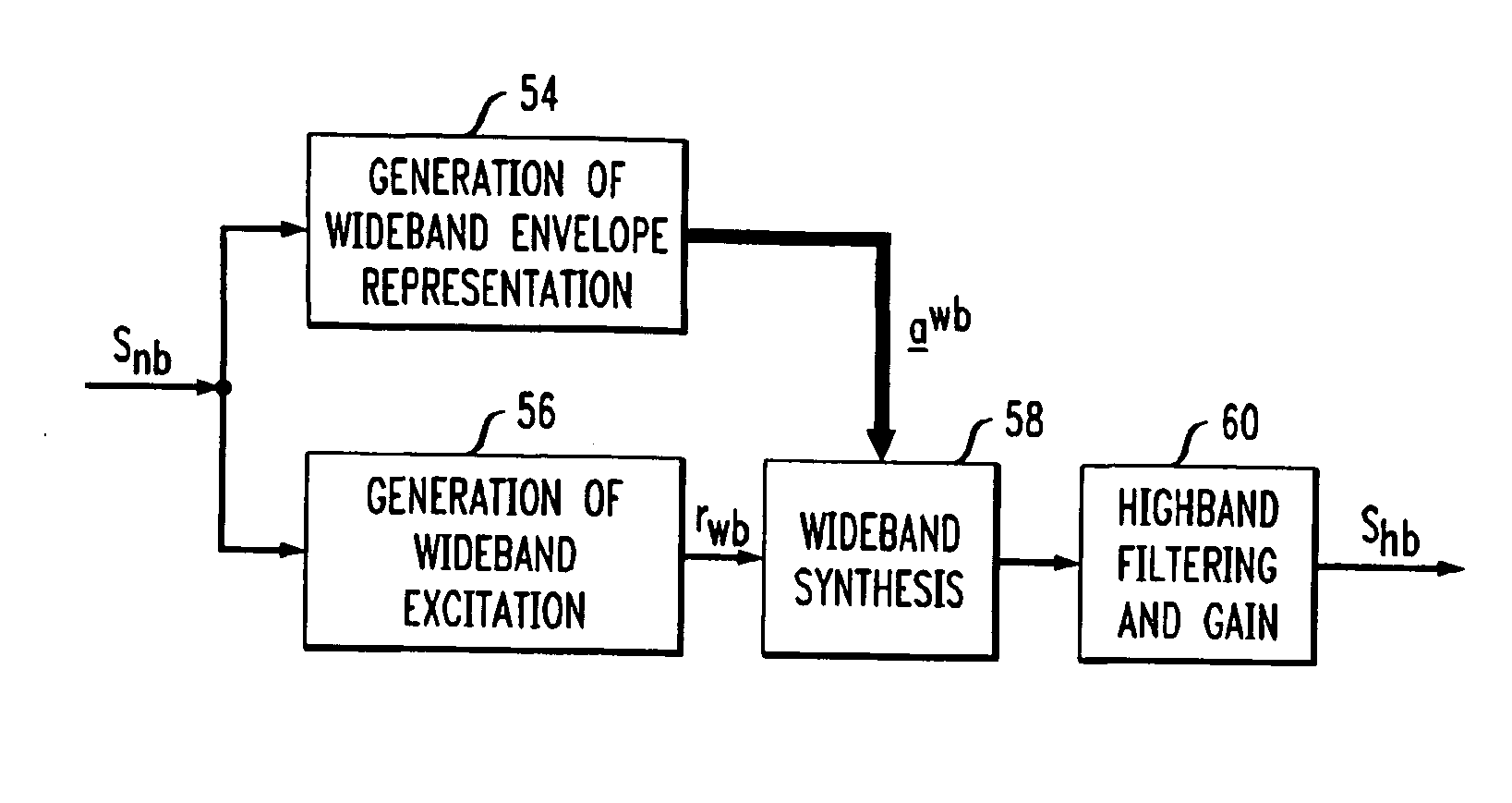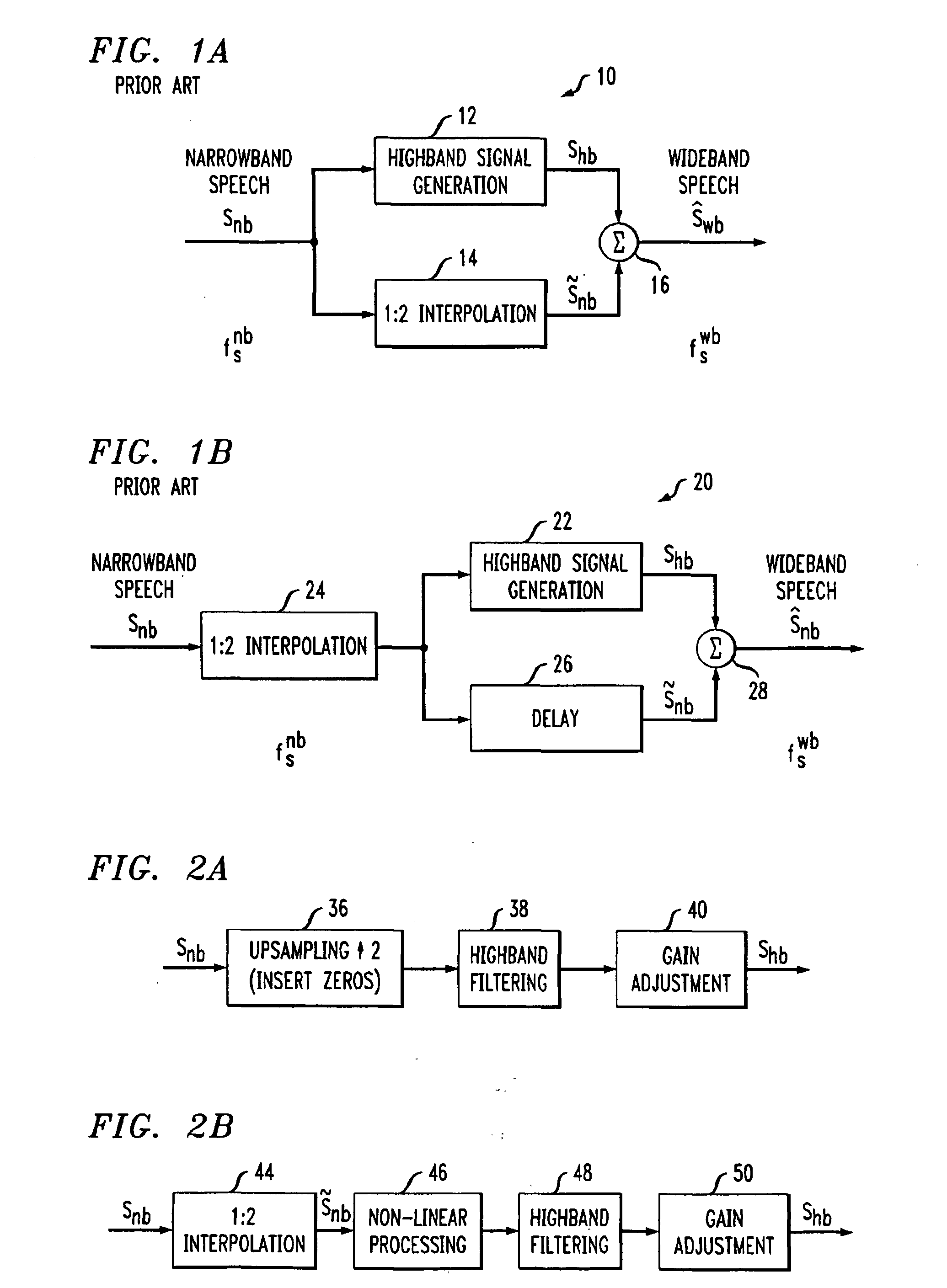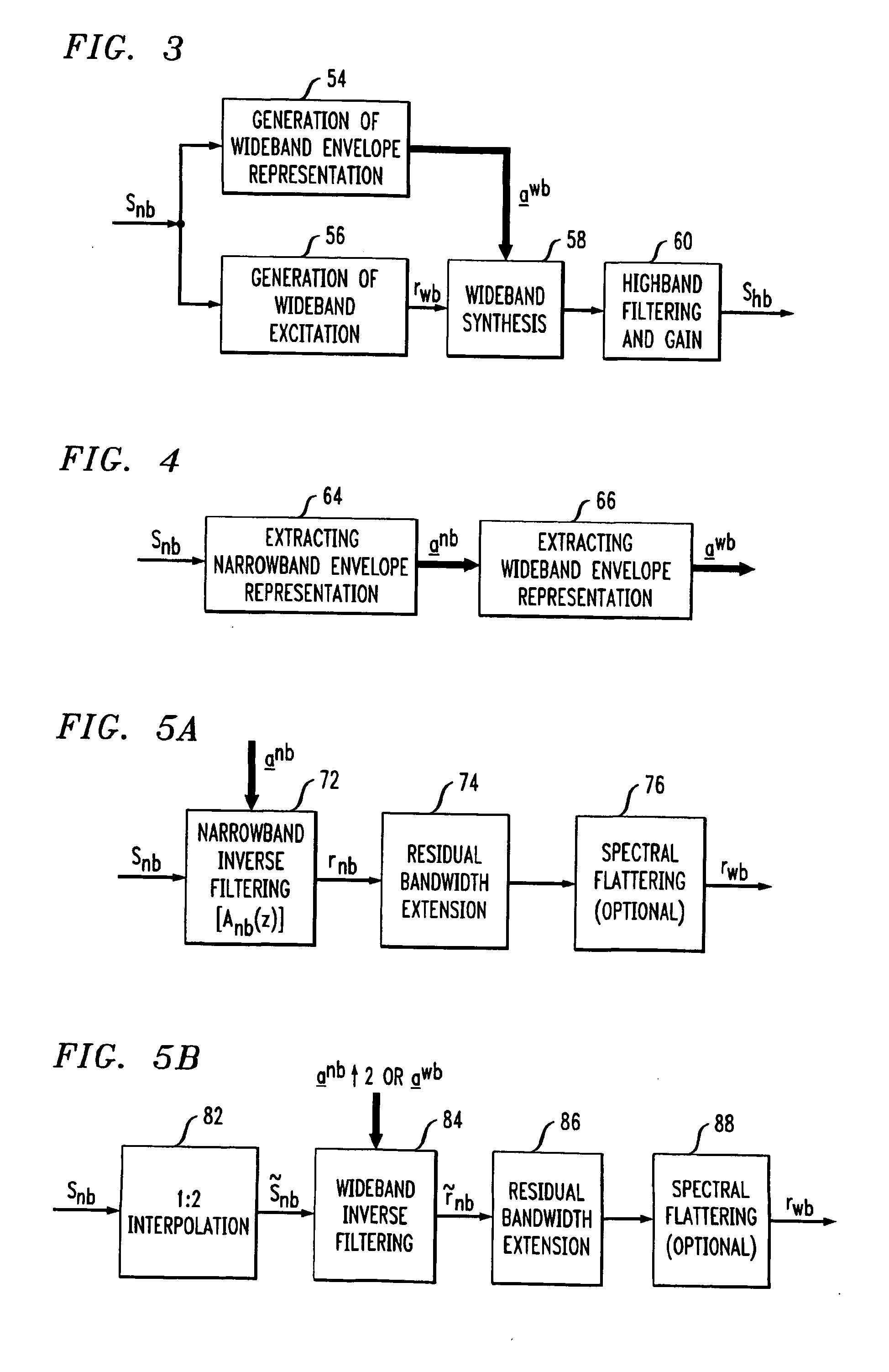System for bandwidth extension of narrow-band speech
a narrow-band speech and bandwidth extension technology, applied in the field of narrow-band speech bandwidth extension systems, can solve the problems of interpolation speech, low bit rate, and inability to meet the needs of wide-band analog signal transmission in existing analog systems, like the plain old telephone system (pots), and achieve the effect of high quality and simple us
- Summary
- Abstract
- Description
- Claims
- Application Information
AI Technical Summary
Benefits of technology
Problems solved by technology
Method used
Image
Examples
Embodiment Construction
[0065] What is needed is a method and system for producing a good quality wideband signal from a narrowband signal that is efficient and robust. The various embodiments of the invention disclosed herein address the deficiencies of the prior art.
[0066] The basic idea relates to obtaining parameters that represent the wideband spectral envelope from the narrowband spectral representation. In a first stage according to an aspect of the invention, the spectral envelope parameters of the input narrowband speech are extracted 64 as shown in the diagram in FIG. 4. Various parameters have been used in the literature such as LP coefficients (LPC), line spectral frequencies (LSF), cepstral coefficients, mel-frequency cepstral coefficients (MFCC), and even just selected samples of the spectral (or log-spectral) magnitude usually extracted from an LP representation. Any method applicable to the area / log area may be used for extracting spectral envelope parameters. In the present invention, the...
PUM
 Login to View More
Login to View More Abstract
Description
Claims
Application Information
 Login to View More
Login to View More - R&D
- Intellectual Property
- Life Sciences
- Materials
- Tech Scout
- Unparalleled Data Quality
- Higher Quality Content
- 60% Fewer Hallucinations
Browse by: Latest US Patents, China's latest patents, Technical Efficacy Thesaurus, Application Domain, Technology Topic, Popular Technical Reports.
© 2025 PatSnap. All rights reserved.Legal|Privacy policy|Modern Slavery Act Transparency Statement|Sitemap|About US| Contact US: help@patsnap.com



